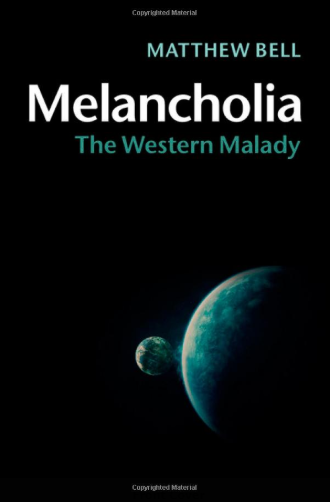Melancholia: The Western Malady, by Matthew Bell
Cultural and historical factors hint at the sources of the difficulty. While there is debate on whether depression overlaps with melancholy and on how much continuity there might be between psychiatric categories and the melancholia that the Western tradition links to genius and to a superior manner of being in the world, depression sometimes retains the dark luster of the ancient black bile and is often accompanied by an exceptionally penetrating reflexivity.
The comparative literature scholar Matthew Bell (2014, xi) insightfully notes:
One distinctive feature of Western culture is the high status that it has accorded to self-consciousness. Melancholia, or at least the psychological symptoms of melancholia as reported from Hippocrates right down through Western history, depends upon the West’s peculiarly introspective culture. The psychological symptoms of melancholia are, to put it crudely, a disorder of malignant self-consciousness.

Description
Melancholia is a commonly experienced feeling, and one with a long and fascinating medical history which can be charted back to antiquity. Avoiding the simplistic binary opposition of constructivism and hard realism, this book argues that melancholia was a culture-bound syndrome which thrived in the West because of the structure of Western medicine since the Ancient Greeks, and because of the West's fascination with self-consciousness. While melancholia cannot be equated with modern depression, Matthew Bell argues that concepts from recent depression research can shed light on melancholia. Within a broad historical panorama, Bell focuses on ancient medical writing, especially the little-known but pivotal Rufus of Ephesus, and on the medicine and culture of early modern Europe. Separate chapters are dedicated to issues of gender and cultural difference, and the final chapter offers a survey of melancholia in the arts, explaining the prominence of melancholia - especially in literature.
Bell, Matthew. 2014. Melancholia: The Western Malady. New York: Cambridge University Press.








































































0 comments
Sign in or create a free account